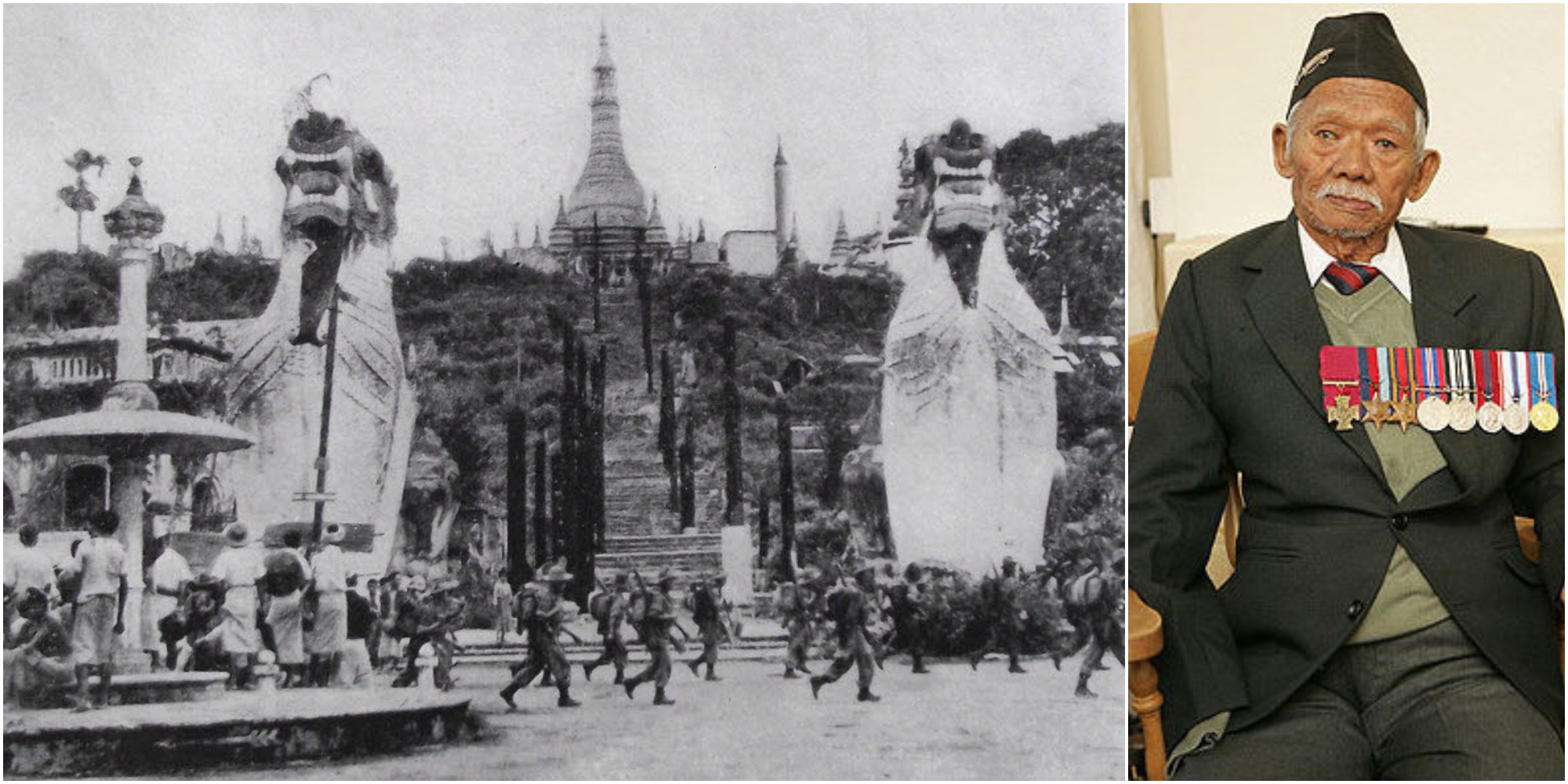
18th Century
Gurkhas in Myanmar
Over 300,000 people in Myanmar are of Nepali ancestry. Many if not most are the descendants of Gurkha soldiers stationed in Burma during British rule.
Nepal's modern history begins in the mid-18th century with the unification of the Kathmandu valley by Prithvi Narayan Shah of the Gorkha kingdom. Following the Anglo-Nepali War of 1815-16, the British East India Company began recruiting soldiers from Nepal. They called the soldiers "Gurkhas". They were generally recruited from upland communities such as the Tamang and Limbu who speak Tibeto-Burman languages.
These Gurkha soldiers were an important part of the British Indian army right up to independence in 1947 and continue to serve in the British and Indian armies today. The fighting abilities of Gurkhas are renowned throughout the world. As part of British-led forces, they have fought in battlefields across Europe and Asia.
More than 100,000 Gurkha soldiers served during World War Two and Gurkhas regiments played a critical role in the Allied conquest of Burma in 1944-45 from Imphal to Mandalay to Rangoon. Thirteen Gurkha soldiers were awarded Britain's highest military decoration, the Victorian Cross.
One Victorian Cross recipient was Rifleman Lachhiman Gurung (pictured here). On the night of 12 May at Taungdaw (Homalin township) in Burma, his platoon was ambushed by the Japanese and the other Gurkhas in his unit were killed. Using a bolt-action rifle and his kukri knife, Lachhiman managed to singlehandedly fight off 200 battle-hardened Japanese soldiers for over four hours, killing 31. Many he killed in close combat, with his kukri. And this, despite a grenade blowing off two of his fingers, destroying his right arm and part of his face, leaving him blind in one eye. At each wave of Japanese soldiers that came at him, he allegedly shouted, "Come and fight a Gurkha!"
Following his retirement from the Gurkha regiment in 1947, Lachhiman Gurung returned to live on a small-holding in Nepal but later campaigned for the rights of Gurkha veterans to settle in Britain, always wearing his VC medal in pride of place for media appearances. A court ruled in their favour in 2008 and Lachhiman Gurung ended up settling in Britain, where he died two years later, in 2010, at the age of 92.
The photograph on the left shows Gurkha troops patrolling the strategic city of Prome after Allied forces recaptured it in May 1945.